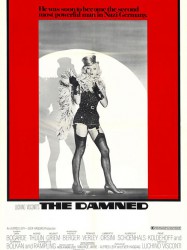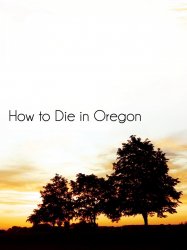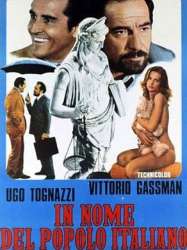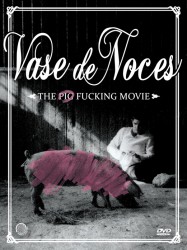Films with theme "Films about suicide", sorted by revenue

Paco (2010)
, 2h8Origin Argentine
Genres Drama, Romance
Themes Medical-themed films, Films about drugs, Films about sexuality, Films about suicide, Erotic films, Films about prostitution, Films about psychiatry, Films set in psychiatric hospitals
Actors Norma Aleandro, Luis Luque, Andrea Galante, Sofía Gala, Claudio Rissi
The film is named after the protagonist Francisco Black aka "Paco" (Tomás Fonzi), a college student who starts using cocaine paste, a cocaine byproduct known as "paco".

A Reason to Live (2009)
Genres Documentary
Themes Medical-themed films, Films about suicide, Documentaire sur une personnalité, Documentary films about health care, Films about psychiatry, Films about disabilities

Click (2010)
, 2h7Genres Drama, Science fiction, Thriller, Comedy, Horror
Themes Films about suicide, Ghost films
Actors Shreyas Talpade, Sadha, Sneha Ullal, Shishir Sharma, Chunky Pandey, Riya Sen
Avi is an ace photographer who is in a live-in relationship with Sonia, a model. One night while returning from a party, the couple accidentally knocks down a young girl with their speeding car. As Sonia was driving the car, to avoid further complications, Avi insists on them fleeing from the accident scene. But trouble starts for the couple soon after. While strange white marks begin to appear in Avi's photos, Sonia starts having spooky experiences. Avi also develops a severe neck pain and even though he does not appear to be overweight, a scale reveals that he weighs 120 kilograms. Avi, too, starts having experiences similar to Sonia's.

Exit: una storia personale (2010)
, 1h20Origin Italie
Genres Drama
Themes Films about euthanasia, Medical-themed films, Films about suicide
Actors Luca Guastini
After his roommate committed suicide, Marco(Luca Guastini) begins to realize that his life is very similar to his friend's.

The Damned (1969)
, 2h36Directed by Luchino Visconti
Origin Italie
Genres Drama, War, Historical
Themes Films about families, Films about sexuality, Films about suicide, Rape in fiction, LGBT-related films, Films about pedophilia, Transgender in film, Political films, LGBT-related films, LGBT-related film, Cross-dressing in film
Actors Dirk Bogarde, Ingrid Thulin, Helmut Griem, Helmut Berger, Renaud Verley, Umberto Orsini
The film centers on the Essenbecks, a wealthy industrialist family who have begun doing business with the Nazi Party. On the night of the Reichstag fire, the family's conservative patriarch, Baron Joachim von Essenbeck, who represents the old aristocratic Germany and detests Hitler, is murdered. Herbert Thalmann, the family firm's vice president, who openly opposes the Nazis, is framed for the crime. He escapes the grasp of the Gestapo, but his wife Elizabeth and their children do not.
 , 1h16
, 1h16Origin USA
Genres Science fiction, Thriller, Documentary, Action
Themes Medical-themed films, Films about suicide, Documentary films about business, Documentary films about law, Documentaire sur une personnalité, Documentary films about health care, Films about psychiatry, Films about disabilities

Suicide Dolls (2012)
Origin USA
Genres Drama
Themes Films about suicide
Actors Christy Carlson Romano, Heather Tom, Steven Bauer, Anne-Marie Johnson, Ryan Carnes, Riker Lynch
Desperate for someone to notice them, high school seniors Amber and Jade have always wanted to do something really killer with their lives. One week before graduation, they decide to make a suicide pact and record the last 24 hours of their lives. As they live out their last day, the girls face past demons and reveal secrets that led them down the path of self-destruction. From drugs to abuse to death, they've lived in a warped world that has propelled them into a downward spiral.

Triple Dog (2010)
Origin Canada
Genres Drama, Thriller
Themes Films about suicide
Actors Britt Robertson, Scout Taylor-Compton, Alexia Fast, Janel Parrish, Brett Davern, Nolan Gerard Funk
The movie commences with a flashback whereby a group of teenage girls are playing "Triple Dog", where by each individual dares another to do something. Chapin Wright (Britt Robertson) triple-dog-dares a popular girl among them, Stacy St. Clair (Julia Maxwell), to jump off the Jogger Bridge. None of them realises how strong the current is in the river below. Thus, when Stacy jumps in, she is unable to reach the top and drowns.

How to Die in Oregon (2011)
, 1h47Directed by Peter Richardson
Origin USA
Genres Documentary
Themes Medical-themed films, Films about suicide, Documentaire sur une personnalité, Documentary films about health care, Films about psychiatry, Films about disabilities
Through a 1994 ballot measure (Measure 16) named the Oregon Death with Dignity Act, Oregon became the first U.S. state and one of the first jurisdictions in the world to allow physician-assisted suicide. How to Die in Oregon covers the background of the Oregon law and the life of a few patients who have chosen to take their life under it. It also features some information about the neighboring state of Washington's attempt to legalize physician-assisted suicide in 2008 through a law (Washington Death with Dignity Act) modeled after Oregon's.

Table No. 21 (2013)
, 1h48Genres Thriller, Adventure
Themes Films about suicide
Actors Paresh Rawal, Tina Desai, Rajeev Khandelwal, Sana Amin Sheikh, Fatima Sana Shaikh, Dhruv Ganesh
Vivaan (Rajeev Khandelwal) and Siya Agasthi (Tena Desae) strive to make ends meet. The couple wins a trip to the beautiful island nation

Pigsty (1969)
, 1h39Directed by Pier Paolo Pasolini, Sergio Citti
Origin Italie
Genres Drama
Themes Films about suicide, Volcanisme
Actors Pierre Clémenti, Jean-Pierre Léaud, Alberto Lionello, Ugo Tognazzi, Anne Wiazemsky, Margarita Lozano
The film features two parallel stories. The first one is set in an unknown past time and is about a young man (Clémenti) who wanders in a volcanic landscape (shot around Etna) and turns into a cannibal. The man joins forces with a thug (Citti) and ravages the countryside. At the end, his company gets arrested and during his execution, he recites the famous tagline of the film: "I killed my father, I ate human flesh and I quiver with joy." The story is about the human capacity of destruction and a rebellion against the social prerequisites implied against it.

The Scarlet Lady (1969)
, 1h30Origin France
Genres Comedy
Themes Films about suicide
Actors Monica Vitti, Maurice Ronet, Robert Hossein, Claudio Brook, Claude Chabrol, Gérard Lartigau
A beautiful Italian businesswoman, Lucille Lombardi (Monica Vitti), discovers that her boyfriend and marketing director, Julien Auchard (Robert Hossein), has bankrupted her family business, cheated her out of her wealth, and left her penniless. Shocked by the betrayal, the loss of her villa in Nice, and feeling that all is lost, Lucille decides to sell her jewelry and binge on champagne and caviar before committing suicide. Her binge renders her intoxicated and leaves her daydreaming about revenge. At first she plans to leave François a note blaming him for her death, but realizing it would have little affect on him, she decides that revenge is the only course—that she must kill Julien before ending her own life. Knowing that Julien travels to Paris every Friday, Lucille decides to hold off on suicide for one week until she has a chance to kill the man who ruined her life.
 , 1h43
, 1h43Directed by Dino Risi
Origin Italie
Genres Drama, Comedy, Comedy-drama, Crime
Themes Medical-themed films, Films about drugs, Films about sexuality, Films about suicide, Erotic films, Films about prostitution, Erotic thriller films
Actors Ugo Tognazzi, Vittorio Gassman, Ely Galleani, Yvonne Furneaux, Pietro Tordi, Simonetta Stefanelli
Set in Rome and its surroundings, the film tells in a frighteningly realistic, ruthless and grotesque the evil of two powerful men of Italy in the seventies: a Director of illegal buildings (Vittorio Gassman), extremist fascist, and an upright judge, cynical looking in part to the Italian law (Ugo Tognazzi). Both can not stand each other, given the contrasts between the two men in any social, political and philosophical. Everyone hates each other and would like to delete it, but just because of the bad example that the two men give power to the people, many Italians are adversely affected because of cheating and rudeness of the fascist manufacturer and the communist magistrate. The director Dino Risi underlines the misdeeds and the weakness of the Italian people to react accordingly, by focusing on the story of these two men who are each other's opposite of the net.

Walkabout (1971)
, 1h40Directed by Nicolas Roeg
Genres Drama, Action, Adventure
Themes Films about children, Films about families, Seafaring films, Films about suicide, Transport films
Actors Jenny Agutter, David Gulpilil, John Meillon, Noeline Brown
A teenaged schoolgirl (Jenny Agutter) and her much younger brother (Luc Roeg) become stranded in the wilderness after their father (John Meillon) goes berserk. After driving them far into the Australian outback for a picnic, the father suddenly begins shooting at the children. They run behind rocks for cover, whereupon he sets the car on fire and shoots himself in the head. The girl conceals what has happened from her brother and, after grabbing some food and supplies, the pair head out into the desert.

Wedding Trough (1975)
, 1h21Directed by Thierry Zéno
Origin Belgique
Genres Horror, Romance
Themes Films about animals, Pregnancy films, Jeu, Medical-themed films, Films about sexuality, Films about suicide, Films about pigs, Films about birds, Films about toys, Films about psychiatry, Films about disabilities, Films about autism, Mise en scène d'un mammifère
The film follows a man, who has an intellectual or mental disorder, living on a farm in rural Belgium. He demonstrates bizarre behavior from the beginning: fastening doll's heads to pigeons; collecting his feces in glass jars and beheading a hen for his own amusement. He is also obsessed with a sow who lives on the farm. We see him gleefully rolling around in the manure with the sow, and then he rapes it, which his behavior suggests he sees as an intimate and mutually agreeable act. Later, the sow gives birth to a litter of piglets. The man attempts to spoon-feed milk to the piglets, but the piglets prefer to drink directly from the milk bowl. In general, the piglets prefer their mother's company, repeatedly scorning the man's advances. Taking this rejection as an unforgivable personal slight, the man hangs the piglets to death and leaves their bodies strung up in the open. When the sow discovers the remains of the piglets, it runs madly around the farm squealing. The sow slips into a deep patch in the mud and drowns there.
 Connection
Connection